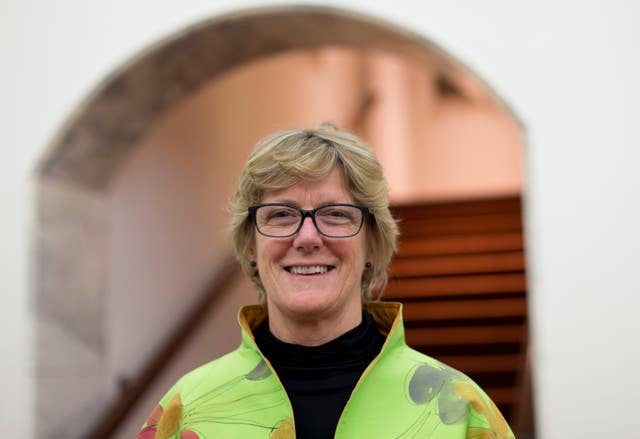
Former chief medical officer Professor Dame Sally Davies described a “car crash” meeting with Michael Gove as he appeared to try to change policy around decontamination days after former spy Sergei Skripal and his daughter were poisoned with Novichok, an inquiry has heard.
An email chain shown to the Dawn Sturgess Inquiry on Monday was started when Dame Sally contacted then-cabinet secretary Sir Jeremy Heywood on March 15 2018, days after the Skripals were poisoned in Salisbury.
Ms Sturgess died in July 2018 after she was exposed to the chemical weapon, which was left in a discarded perfume bottle in Amesbury, Wiltshire.
In an email sent to Sir Jeremy, Dame Sally said: “Generally I believe we are doing a good job and all pulling together effectively, but I am concerned that today, Thursday, the process went wrong and I feel you should be aware.”
She said of a ministerial meeting on recovery which was to focus on decontamination, chaired by then-environment secretary Mr Gove, “it became quickly clear that SoS (secretary of state) had not been briefed”.
She added: “But importantly he did not accept that, while the national role for decontamination is to give guidance and check plans, it is for the LA (local authority), in partnership with local actors and Defra (Department for Environment, Food and Rural Affairs) to implement and deliver.
“He repeatedly said he wanted a new system where there was an accountable national leader for him doing it all.”

Dame Sally went on to say Mr Gove’s team “handled it really well, explaining about using the system developed over time, that has been tried and tested, that local people can see, feel and relate to”.
She then said Mr Gove “refused to accept” and the meeting “became a car crash”, adding “if it was not so important it would be a farce”.
Asked by Jesse Nicholls, counsel for Ms Sturgess’s family, what she meant by that, Dame Sally told the inquiry: “It’s rarely successful to make up new processes and policy in the middle of an emergency.
“He appeared, because he had not had a briefing, to want to do that and, as it played out, it was worrying.”
The email chain was later forwarded on by Sir Jeremy, who died in November 2018 after retiring on health grounds, to someone whose name has been redacted, with him adding: “A bit worrying…”
Sir Jeremy also replied to someone whose name is redacted, saying: “This man cannot be put in charge of anything…”
The inquiry continues.


Why are you making commenting on The National only available to subscribers?
We know there are thousands of National readers who want to debate, argue and go back and forth in the comments section of our stories. We’ve got the most informed readers in Scotland, asking each other the big questions about the future of our country.
Unfortunately, though, these important debates are being spoiled by a vocal minority of trolls who aren’t really interested in the issues, try to derail the conversations, register under fake names, and post vile abuse.
So that’s why we’ve decided to make the ability to comment only available to our paying subscribers. That way, all the trolls who post abuse on our website will have to pay if they want to join the debate – and risk a permanent ban from the account that they subscribe with.
The conversation will go back to what it should be about – people who care passionately about the issues, but disagree constructively on what we should do about them. Let’s get that debate started!
Callum Baird, Editor of The National
Comments: Our rules
We want our comments to be a lively and valuable part of our community - a place where readers can debate and engage with the most important local issues. The ability to comment on our stories is a privilege, not a right, however, and that privilege may be withdrawn if it is abused or misused.
Please report any comments that break our rules.
Read the rules hereLast Updated:
Report this comment Cancel